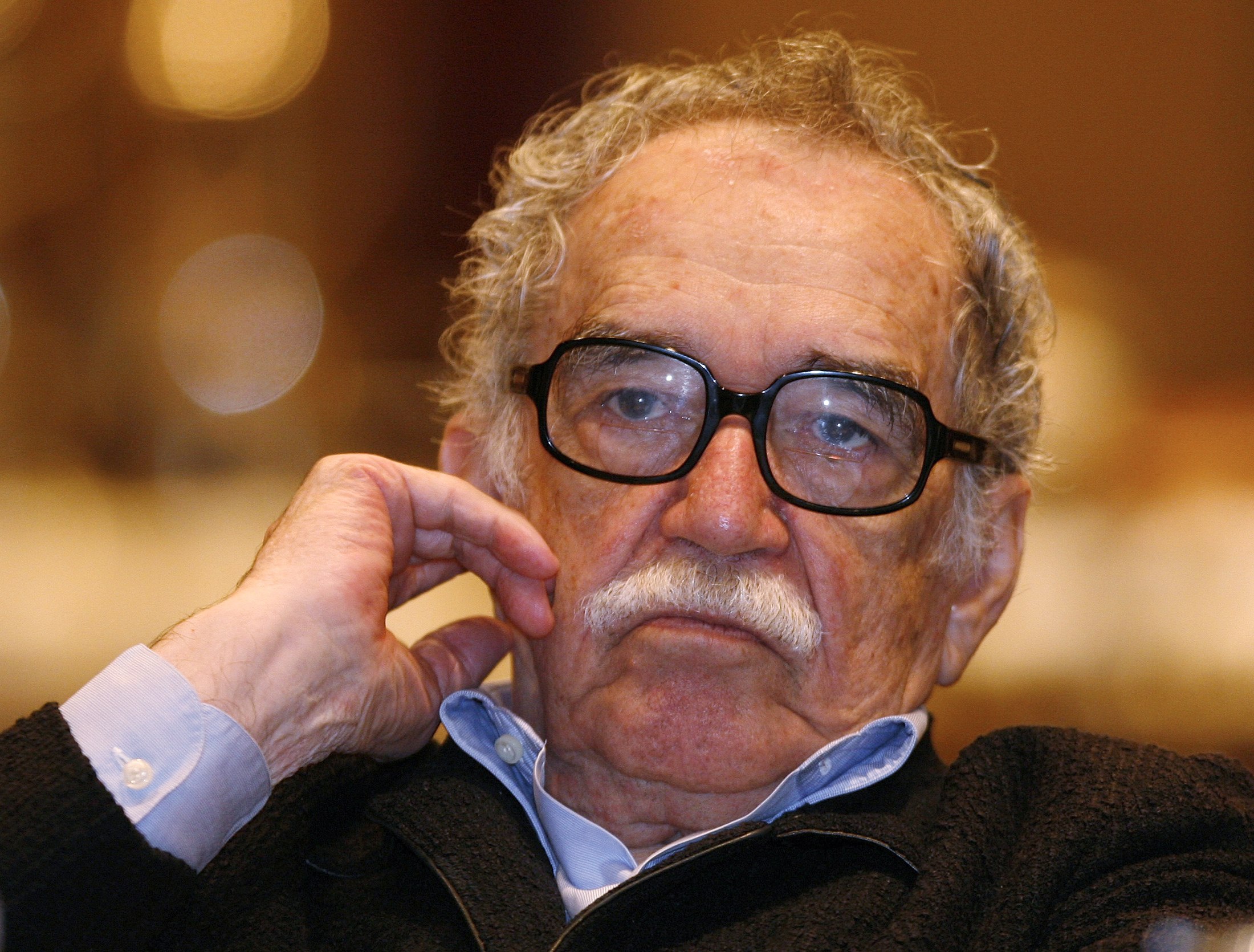Gabriel Garcia Marquez, the Nobel-winning Colombian author who used magical realism to tell epic stories of love and family in Latin America, died Thursday at the age of 87.
Known affectionately as "Gabo," the author of "One Hundred Years of Solitude" and "Love in the Time of Cholera" became one of the most popular Latin American novelists in the world and the godfather of a literary movement that witnessed a continent in turmoil.
The journalist was a colorful character who befriended Cuban leader Fidel Castro, got punched by fellow Nobel laureate Mario Vargas Llosa and joked that he wrote to make his friends love him.
Politicians and celebrities mourned his death, the cause of which was not immediately revealed.
"One thousand years of solitude and sadness for the death of the greatest Colombian of all time," Colombian President Juan Manuel Santos wrote on Twitter.
Colombian pop star Shakira said: "Your life, dear Gabo, will be remembered by all of us as a unique and singular gift, and as the most original story of all."
The writer had made fewer public appearances in recent years and was hospitalized for pneumonia on March 31, returning to his Mexico City home a week later to recover there.
His wife Mercedes and two sons were reportedly by his side at home at the time of his death.
Born March 6, 1927, in the village of Aracataca on Colombia's Caribbean coast, Garcia Marquez was the son of a telegraph operator.
He was raised by his grandparents and aunts in a tropical culture influenced by the heritage of Spanish settlers, indigenous populations and black slaves. His grandfather was a retired colonel.
The exotic legends of his homeland inspired him to write profusely. His masterpiece, "One Hundred Years of Solitude," was translated into 35 languages and sold more than 30 million copies.
The book, published in 1967, is a historical and literary saga about a family from the imaginary Caribbean village of Macondo between the 19th and 20th century -- a novel that turned the man with the mustache and thick eyebrows into an international star.
'Without a penny'
Garcia Marquez wrote the novel after moving to Mexico City in 1961, taking a long bus ride from New York with his wife, Mercedes Barcha, and son Rodrigo.
His second son, Gonzalo, was born a year later in the Mexican capital, where he lived for more than three decades.
He recalled arriving in Mexico City "without a name or a penny in my pocket."
The writer faced financial hardship, working for advertising agencies, penning screenplays and editing small magazines.
"As long as there was whisky, there was no misery," Garcia Marquez quipped.
He owed nine months of rent payments when he penned "One Hundred Years of Solitude" and could barely afford to send the manuscript to his editor in Argentina.
Garcia Marquez wore a white liqui-liqui, a traditional costume with a high collar from his region, to receive his Nobel prize in Sweden in 1982.
The Nobel committee rewarded him for books "in which the fantastic and the realistic are combined in a richly composed world of imagination, reflecting a continent's life and conflicts."
His other famous books include "Chronicle of a Death Foretold," "The General in His Labyrinth" and his autobiography "Living to Tell the Tale."
His final novel, "Memories of My Melancholy Whores," was published in 2004.



















































